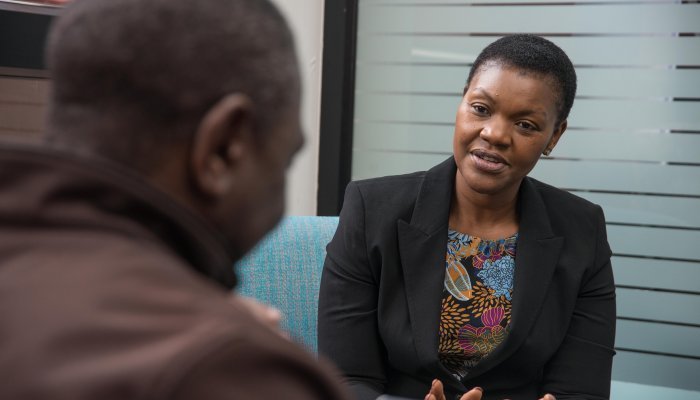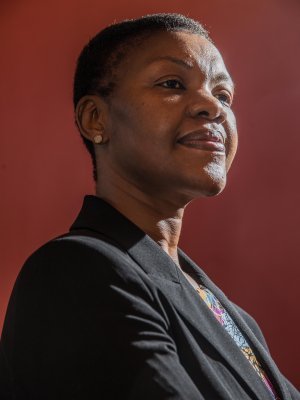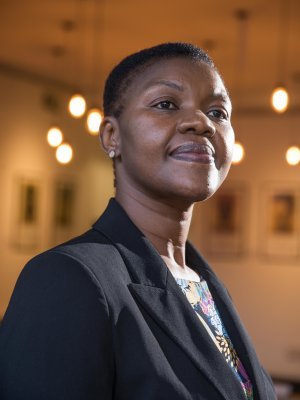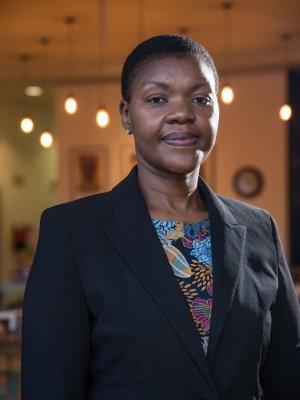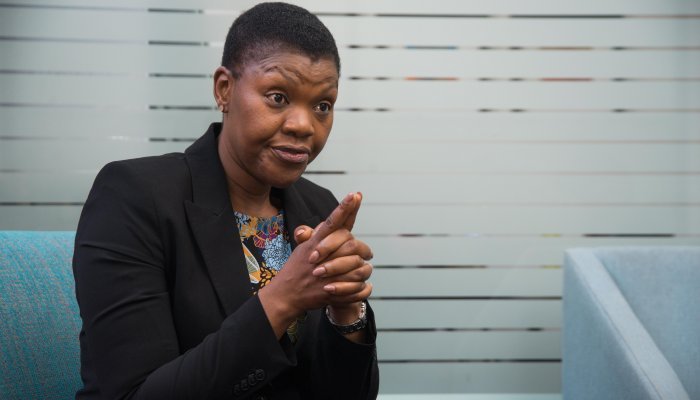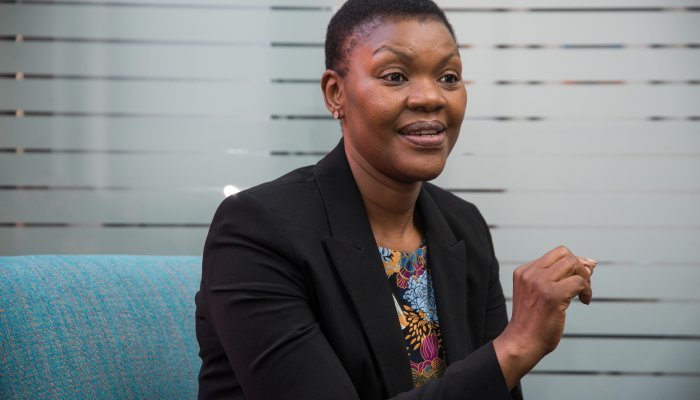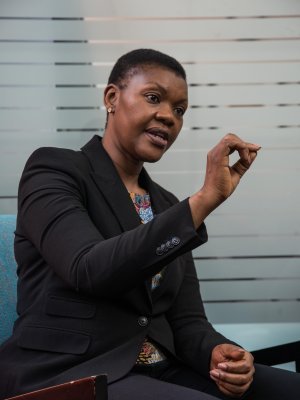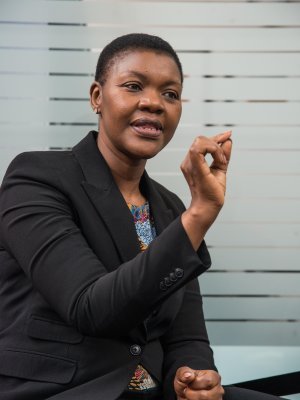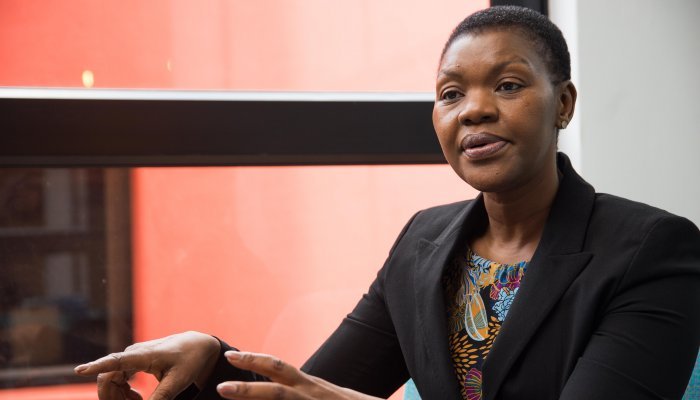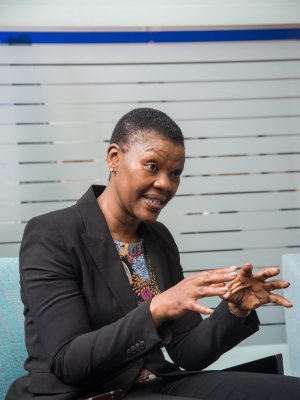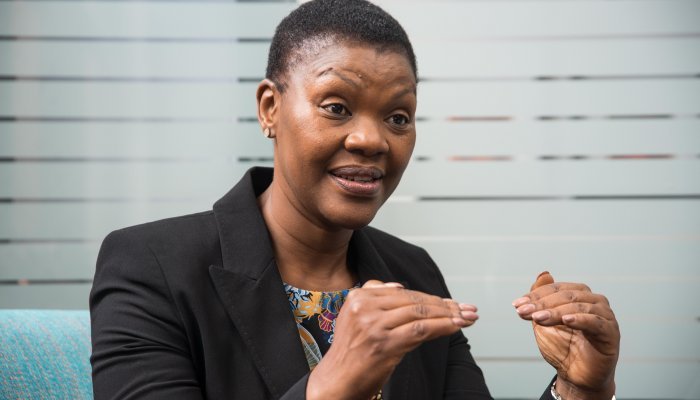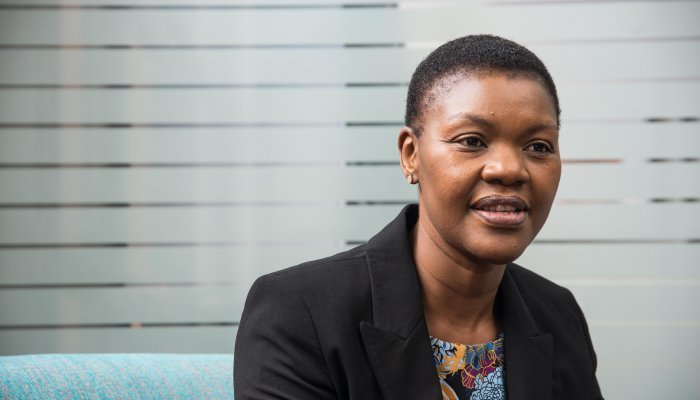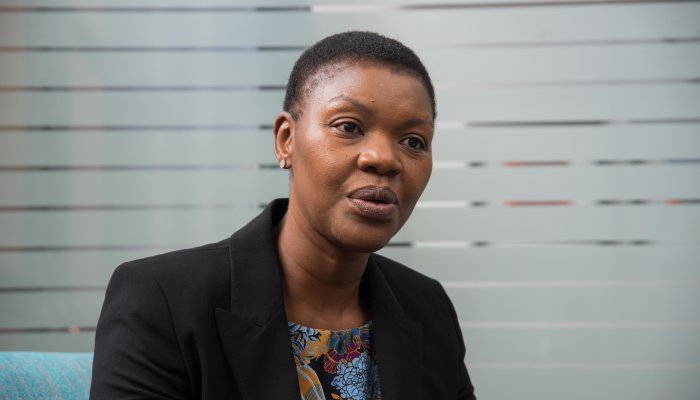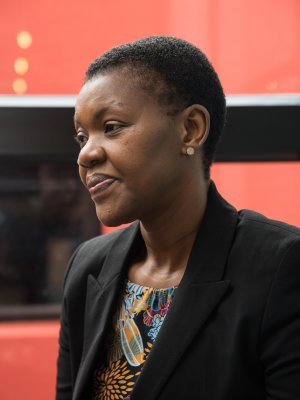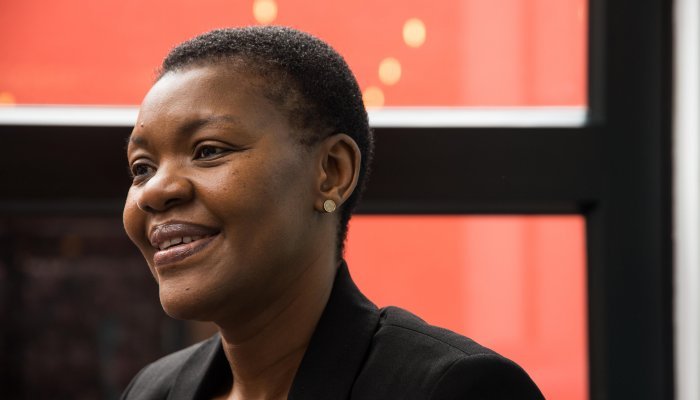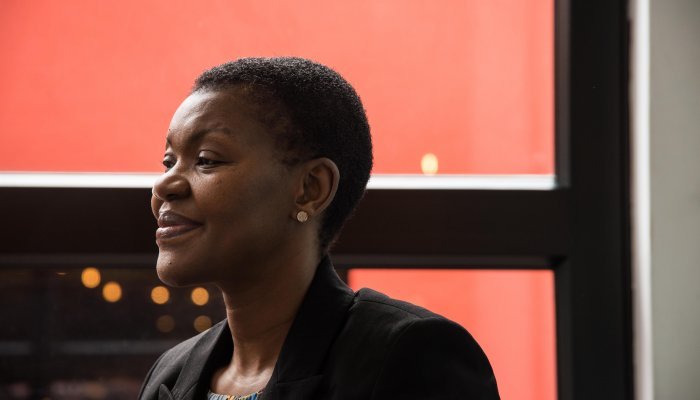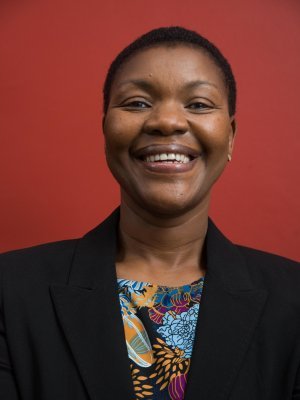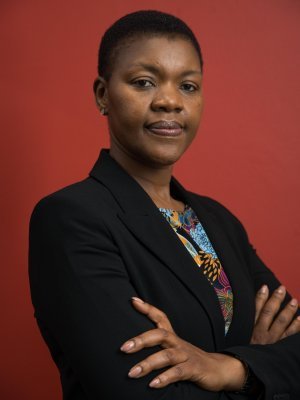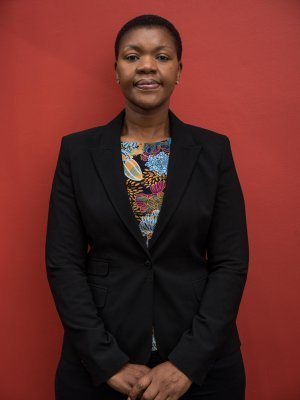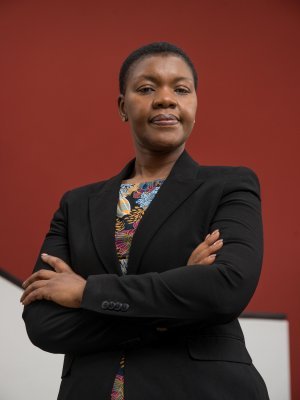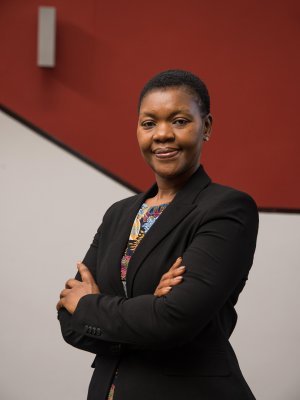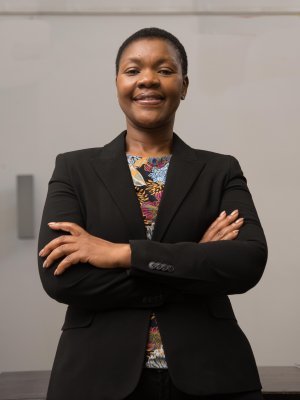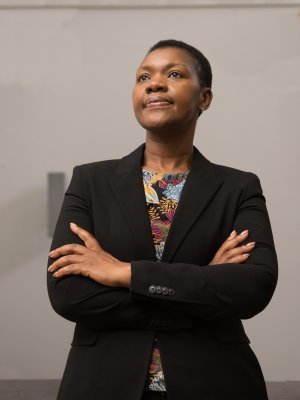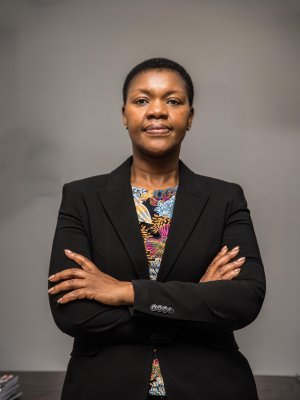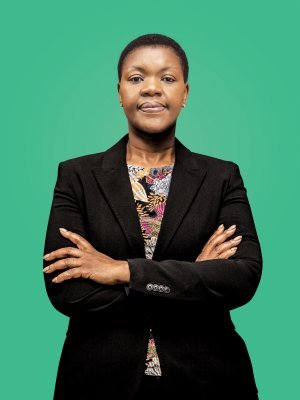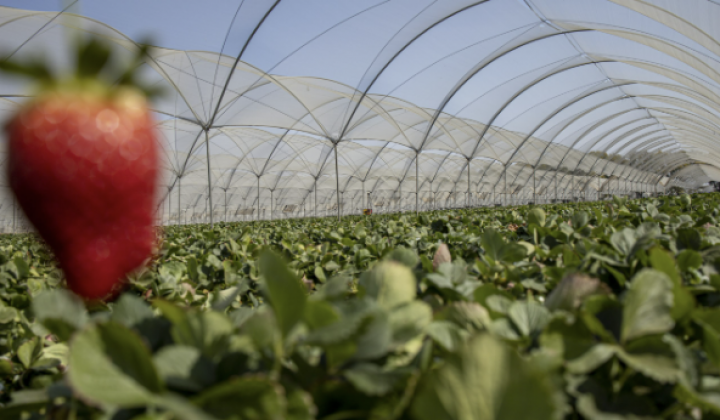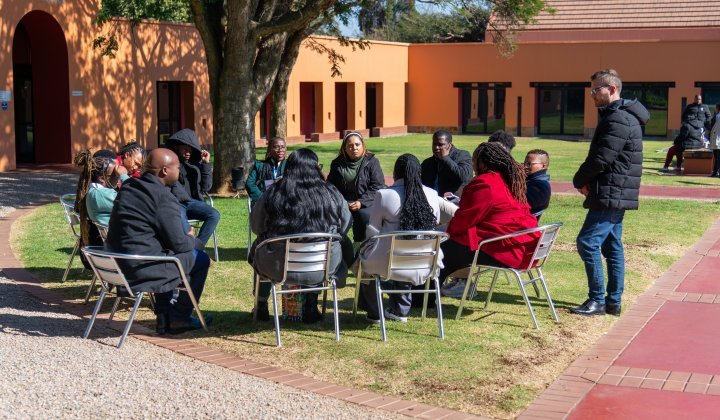On her return to the South African public broadcaster in March, Phathiswa Magopeni was openly mocked.
“Several people have tried and failed and it's men who have tried,” a staffer said to her face at a second meet and greet session. “So who do you think you are and how do you think you're going to change the environment?”
Fast forward two months later, the staffer’s praise of the new South African Broadcasting (SABC) head of News and Current Affairs was close to embarrassing: “Oh we needed this,” he gushed. “We have been waiting for this and I support this fully. This has to work.”
For Magopeni, 48, the exchange perfectly illustrated the scale of the challenge to rebuild the credibility of the public broadcaster as a trusted news and programming source after years of pandering to political whims, corruption and indifferent managers scarred by limp leadership.
“I found a news division where there was misalignment between what was meant to be done and what was actually being done,” Magopeni told Acumen. “We know it's a public community service meant to serve the public impartially and without any influence but the kind of structure that I found wasn't talking to any of that.”
A glaring example was the clear division between radio and television news services where each conducted its own diary meeting and planned coverage with little co-ordination.
“These two pillars that are meant to anchor the SABC’s editorial character were spoken of in the corridors and informally but there was nothing in the brand itself that actually anchored them. The structures were not there. There was no protection of the editorial character of the SABC. It was a very subdued newsroom but you could sense they were ready for change.”
There was no protection of the editorial character of the SABC.
Out with the old...
Her appointment, following the arrival of former MTN Group executive and past eNCA Africa editor Chris Maroleng and the establishment of a new board, marks a new chapter in the government’s attempts to revamp the SABC after the tenure of former chief operating officer (COO) Hlaudi Motsoeneng, who ordered censorship of protests and fired journalists who resisted the abrupt policy turn and his dictates.
The policy was eventually declared illegal by the Independent Communications Authority of South Africa (ICASA), but the damage had been done as several journalists quit while some executives resigned. Maroleng was made COO from February. The new board is on the hunt for a new chief executive officer (CEO).
And into cauldron walks Magopeni, who cut her journalism teeth at the SABC in 1998, starting off as a desk producer in Cape Town where she had obtained her first degree, a BA in Humanities from the University of the Western Cape in 1992.
Education was to keep her there for a further five years; first, as an Honours Structural and Sociolinguistics degree student in 1993, and then working as a junior lecturer from 1994 as South Africa became a democracy with Nelson Mandela as its first black president. An MPhil degree in Applied Linguistics followed in 1997, the same year she left for the University of Cape Town.
“It may sound odd but I think journalism found me,” she says with a laugh about the move that forever changed her career trajectory. “I was busy enjoying my time in academia, but just as I was starting to find my rhythm, journalism happened and I have never looked back.”
The next 17 years were spent between the SABC and eNews where she flourished, rising through the ranks to become head of Terrestrial News Services until February when the SABC reclaimed her. One of the highlights at eNews was her role in conceptualising and co-ordinating the launch of an isiZulu news service now airing on the OpenView HD channel.
The challenge
Magopeni is clear about the mandate she has been given at the SABC after the scandal-ridden years of Motsoeneng, who was aided by Simon Tebele, the former head of News and a key figure in the wrongful dismissal of eight journalists who criticised Motsoeneng’s policies. Seven of the eight have since been rehired while Suna Venter passed away.
“Firstly, I have been tasked with stabilising the newsroom, following a period of editorial distress and uncertainty, as well as ensuring that SABC News delivers on its core mandate as a public news service. This is about ensuring its editorial independence and impartiality is espoused and becomes central to all decision-making in the gathering, processing and dissemination of news.
“Secondly and most importantly, my presence here is about protecting the newsroom from all forms of interference, both external and internal, as this has potential to contaminate our editorial independence and compromise our integrity.”
So far it’s been hard but rewarding work. There have been no editorial or late night calls from either Communications Minister Nomvula Mokonyane or from President Cyril Ramaphosa and other African National Congress bigwigs. Magopeni says she has no complaints so far, including the state of her relationship with Maroleng and Acting CEO Nomsa Philiso.
“I have been given space to do what I meant to do and this is straight from the board. I report to the COO in terms of operations and I report to the acting CEO in terms for my upward editorial referrals. The lines are very clear.”
A new brand
The second week of June saw the rebranding of SABC News with a promise of transforming the organisation’s culture, and a commitment to independent and impartial journalism across its 18 radio stations, four television platforms and digital portals.
“We are moving away from a fragmented approach that is based on defining our operation as isolated platforms, that is, radio, television and digital. This is going to allow us to focus on what our audiences come to us for, regardless of where, when and how they access our content.
“Our content distribution approach will take care of this and ensure that what audiences experience is consistent and seamless across platforms. Key to this is breaking down silos, and in particular, cognitive barriers that are hardened by specialist mindsets. It is not going to be easy to deal with entrenched traditional thinking but there is a way to bring everyone along.”
Growing up tough
That dogged determination has been a constant in the life of a woman who grew up poor in the Eastern Cape, raised till she was eight by a disciplinarian mother and a migrant father scratching for a living in Cape Town. Magopeni recalls several late and hungry winter nights and early cold mornings looking for that one lost sheep or goat.
“With my mother, you would go to bed hungry and she wouldn’t blink. She would say, ‘It’s not going to change, and you will only eat in the morning.’ You wake up and the first thing that you to do is to find that goat before you went to school,” Magopeni says, before adding, “Yes, I think in fact she was harsh.”
...dogged determination has been a constant in the life of a woman who grew up poor in the Eastern Cape...
It was discipline that later came to help her survive during even harsher times after her mother died giving birth to a fifth child when Magopeni was eight. With an absent father, the young Magopeni took on the responsibility of helping look after her siblings while continuing with school without basics like uniforms and shoes.
From an early age she loved singing but without the appropriate uniform, the school rules dictated that she couldn’t participate. No worry, the village made a plan: one family would lend her a uniform, another some shoes and another something else until she was admissible.
“We shared our poverty and we didn’t think that it was poverty. We just thought it was how it was meant to be,” she says with no hint of anger or bitterness. “I didn’t have professionals or business people that I could look up to in terms of strength. It was all from within the village.”
Having survived the village, the college years living with her father and another man in a single hostel in the township of Langa in Cape Town were to test her further. Food shortages and money to go to university were constants. It is a period she doesn’t talk about a lot.
The learning habit
With education having played such a prominent role in the transformation of her life, Magopeni has remained a life-long student. In 2005 she got an Integrated Marketing and Advertising diploma from the AAA School of Advertising, receiving a trophy for best brand management student.
Six years later she was selected for a Menell/Duke Media Fellowship Programme in the United States and by 2014 she was back, receiving her MBA from GIBS. She is now studying for a DBA at GIBS, with a focus on the financial viability of journalism in South Africa.
It’s education that is coming in handy as she tackles the challenges at an institution that has ossified over the years because of political interference and has lost some of its best talent and market share to upstarts including eNCA and international broadcasters. Professor Louise Whittaker, executive director of Academic Programmes at GIBS, who is supervising her PhD says she has found a keen student in Magopeni.
“Phathiswa is focused and dedicated, able to see the big picture but also understand the importance of detail. She is incredibly self-effacing and modest but very strong at the same time. I have really enjoyed working with her thus far.”
At the SABC, Magopeni has found that focus on detail is vital while also having to pay attention to the environment in which her new charges are working and the evolving news industry.
“The key challenges are leadership capacity, management processes and work environment. These include the technological and a safe psychological environment for people to speak out without fearing victimisation. The fortunate part is that in dealing with these, I am going to rely on the vast experience of existing talent in our newsroom. SABC News is fortunate to have professional journalists that take pride in their craft and have respect for the South African public they serve. What has been a surprise for me was to find an organisation that is ready to transform, with people who have made it their responsibility to initiate the process.”
Technology-led change
She says the changes in the industry, especially those that are technology-driven, affect both the way news is understood and how the task of news gathering and dissemination is executed while sifting what is relevant for South Africans.
“One of the primary questions we ask ourselves is – What problem are we solving? How do we frame and define this problem in a way that is beneficial to the South African citizen who relies on us for their news and information needs? The reality is that as part of the knowledge economy we are not only competing with other news outlets but with other sources of information as the Internet has made access much easier.
“In crowded spaces like ours there are tough choices to be made, such as exercising disciplined focus and remaining absolutely clear about who you are, what you are about and what you cannot be as a news outlet. We are going to tell this story in its light and shade.
“Also, continued changes in news consumption patterns that have led to audience fragmentation mean that advertising as a primary source of revenue is under threat. News gathering is an expensive endeavour and this requires different approaches and innovative ways to generate revenues to sustain credible journalism.”
Caxton Professor of Journalism at Wits University, Anton Harber agrees that Magopeni's elephant is a very large one indeed: “One should not underestimate the challenge: she has to rebuild and modernise the SABC’s capacity to cover news in a highly competitive and rapidly changing environment, and will have to fight to re-establish the independent public service journalism that produces quality. She will face major financial, political and personnel challenges, and work under intense public scrutiny. It takes strength, skills and solid values to tackle this, and Phathiswa has these qualities.
She will face major financial, political and personnel challenges....
“Phathiswa is a strong and highly qualified woman, with a fierce determination. She has moulded her career for this formidable challenge and I believe she has the right experience and values to take it on,” says Harber.
Meet the team
Magopeni has already visited the SABC’s 30 offices throughout the country’s nine provinces and in the months ahead will make tough decisions on who moves forward with her among the corporation’s 950 news staff, which includes 300 freelancers.
Inside the newsroom, Magopeni is also making her mark. At the countrywide meetings, staffers have been urged to air grievances in the presence of their superiors to deal with past complaints. First, she tells everyone: “My name is Phathiswa and I am not GE (Group Executive)”. And it’s been eye-opening.
“The stuff that came out! I want us to create space for a courageous conversation. We need to allow constructive dissent within the newsroom and no editor is going to say ‘shut up’. Because if you don’t listen I have no reason to believe you are going to bring the multiplicity of voices in our news content. If you don’t listen to the forces that make you uncomfortable here I have no reason to believe that you are going to bring in different voices from outside.”
The SABC is also taking steps to deal with its past. In the first week of June, Philiso announced two commissions of inquiry expected to conclude by the end of July. One will probe allegations of a “sex for jobs” culture while the second one will investigate claims of editorial interference in the SABC newsroom between 2012 and 2018, covering everything from politics to commercial interests.
Regarding the encounter with the staffer who doubted her, Magopeni recalls laughing and telling him the best way of turning the elephant that he said the SABC was, was by beginning with small parts such as the ears and tail and eventually moving the entire thing.
So far, it appears, the big elephant is responding.
MAGOPENI’S PRIORITIES
- Strengthen leadership capacity
- Streamline management processes
- Improve the work environment
- Address technology requirements
- Communicate the editorial position/approach/stand
CHALLENGES
- Manage political demands
- Expand & strengthen news management process
- Improve the quality of news offering
- Prepare for increased competition


